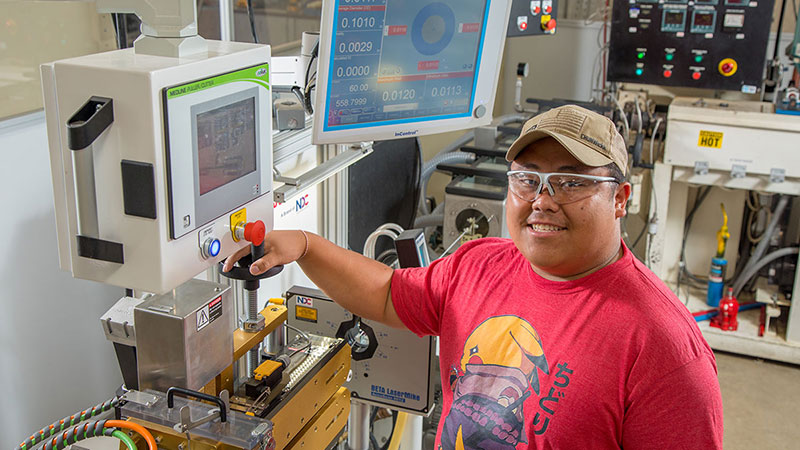Presidential candidates, policymakers and employers need to get on board
Job creation and income equality formed a cornerstone of Dr. Martin Luther King Jr.’s work and writing. As we look to the future of work, we must promote opportunities for everyone, emphasizing racial justice and equity. Research shows that Black Americans may be hit especially hard by automation and other changes in the workforce. In this article, we look at some of the steps that policymakers, employers, and workers need to consider in adapting to this fast-changing environment.

For all the talk about the “future of work” – as forecast by labor economists and debated among presidential candidates – the reality is the future is already here. It’s time to start focusing on what we can do now to support today’s workforce.
By far most of the good jobs today and in the future require education and training beyond high school. And American workers know it too – but say they need help getting those skills so vital in a changing workplace.
A Lumina Foundation survey found 58 percent of workers say the skills needed for their jobs have changed significantly over the last five years, and 94 percent agree that ongoing education and training is critical to improve their job performance and career prospects. At the same time, a study from the Joint Center for Political and Economic Studies finds just under half of workers report that financial constraints are a major barrier to acquiring new skills.
We’ll do better when we focus on the areas that yield the best results. Consider this: By 2022, automation – feared by many today as a job-killer – will actually create 58 million more skilled jobs than it displaces.
Corporate leaders such as Walmart and Amazon have made headlines for developing their own education and training to help workers acquire the skills they need, and other companies should follow their lead. Doing so will likely strengthen worker recruiting and retention efforts, with 86 percent of Lumina survey respondents saying they are more likely to want to work for a company that invests in their ongoing education and training.
But to meet the intense talent demands of today’s and tomorrow’s economy, companies must develop new ways of reskilling and upskilling workers. We need focused, coordinated partnerships among employers, higher education and training providers, policymakers, and others to realize this vision.
To promote opportunities for everyone, we’ll need to emphasize racial justice and equity. The Joint Center study found that 85 percent of Asian-American workers and over 70 percent of white, Black, and Hispanic workers expressed interest in employers providing tuition subsidies and on-the-job training. And with people of color estimated to make up much of our population sometime between 2040 and 2050, their perspectives about the acquisition of skills, benefits, and education are even more critical.
So, what can the candidates, elected officials and employers do now to support a strong workforce for today, and tomorrow?
- Workers need to consciously commit to lifelong learning and make informed choices about the skills and credentials they pursue.
- Policymakers should think beyond technological displacement to ensure that all workers—including those who are unemployed and those in lower-paying jobs with few benefits—have clear pathways to obtain skills, credentials, and good jobs in today’s economy.
- Employers should invest in their own education and training programs.
- Education and training providers must create affordable, flexible, and quality career pathways for workers interested in earning good credentials to raise their skills.
- Policymakers, employers, and education and training providers should design credential and career pathways that are accessible to all in our increasingly diverse nation, and ensure that workforce training opportunities do not merely replicate past racial disparities.
In a historically tight labor market – and one that is rapidly demanding new skills to succeed – American workers need help navigating the new realities of the workplace. Elected leaders and employers can help them best by helping to solve today’s challenges – recognizing that in many ways the future of work is already here.
Chauncy Lennon is vice president for the future of learning and work at Lumina Foundation.
Spencer Overton is a professor of law at George Washington University and president of the Joint Center for Political and Economic Studies.
